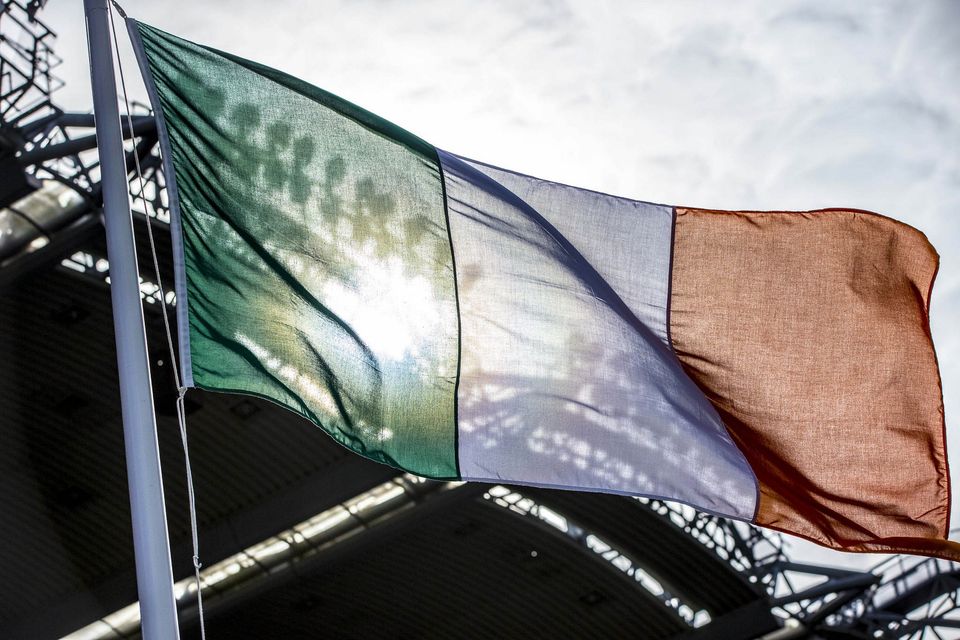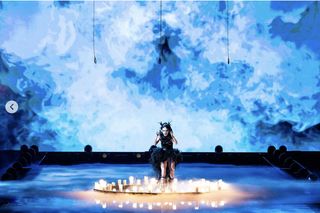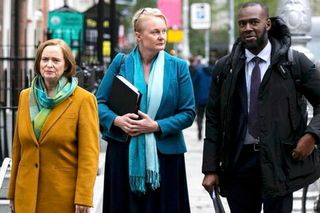The People’s Flag: How well has the United Nations promoted international cooperation, justice and human rights?
Irish flag flying
The almost global membership of the United Nations is simultaneously its biggest strength and weakness. Its strength is its numbers-there are 193 members of the United Nations. Following recommendation by the Security Council, a majority vote is required by the General Assembly to join.
The Vatican chooses not to partake, others are not recognised as independent nations, and thus do not meet the criteria for entry. However, the scale and spread of this post-war, global monolith does not escape critique.
Roughly only half of the world’s countries are democratic; and this is reflected in the U.N. Therefore, differentiating between cultural differences and human rights abuses is not always clear. The U.N. has been called out for previously allowing Saudi Arabia to join the United Nations Human Rights Council when its conducts public executions, usually beheadings. (There have been 31 in 2024 so far).
The failed state Libya is a mber, as is Iran, Venezuela, and North Korea - all with less than polished human rights records. One could argue however, that these are the problems of particular states, rather than the United Nations problem for tolerating intolerance.
These ideological conflicts of trying to engage despots in what is essentially a Western democratic, multilateral construct is one of the key problems people see with the UN, but what is the alternative? Creating another world organisation?
One that enforces what would assumably be Western hegemony through coercion and military interventions? Or else isolate and alienate countries with whom have less than a perfect record of justice and human rights? The United Nations promotes the value of peace and peace-keeping,justice and human rights but enforcement is a delicate line when handling real politk.
The second main criticism of the United Nations is structural. Firstly, the perceived inadequate number of General Assembly Emergency Special Sessions (11 in total) during international crisis when promoting juctice and human rights is seen as failing to prevent genicodal escalations. (In contrast, there have been 78 regular, annual sessions).
The second structural problem, and perhaps its most problematic is the veto power of the UN security council. The oppositional political legacy of Cold War politics between the U.S.A. and Russia, as well as China, France and the U.K. has hindered humanitarian aid and peacekeeping. The U.N. failed to stop the Khmer Rouge from killing Cambodians from 1975-1979, and did little to intervene in Rwanda when the Hutus began slaughtering 200,000 Tutsis over a hundred day period in 1994.
Nor did the U.N. step in to save 8,000 Bosnian Muslim men killed by Bosnian Serbs in 1995. One could also mention the conflicts in Korea and Darfur, the wars in Yemen and Syria, and the plight of the Rohingya people in Myanmar.
But the United Nations is a neutral institution and hence does not take sides in conflict, and is instead there to broker and maintain peace. Preventing it, becomes more political and is neither neutral nor always possible.
Structurally, the U.N. does not have a standing army - it pays countries for its soldiers. Despite these blights humanity’s and the U.N.’s human rights record, it has successfully brought about peace in Cambodia, Sierra Leone, Mozambique,Guatamala and Sudan. Since it began, the United Nations has brought about 172 peacful settlements, an achievement unparalleled in history.
The third contentious issue concerns acounts and accountability. The U.N.’s funding and spending regularly causes political debate - some countries are slow to pay, other simply debate whether to continue funding it as much. In recent years, however, the United Nations has helped discredit its own reputation. Following the devastating earthquake in Haiti in 2010, U.N. troops caused a massive outbreak of Cholera from effluent discharged into a tributary river which affected around 800,000 people. It wasn’t until 2016 that the U.N. accepted the irrefutable evidence.
Scandal make for better headline and clickbait, while when something is effective and working well, it’s not always as obvious.
Banki-Moon, a victim of the Korean War in the 1950s, was supplied with humanitarian aid by the U.N. He later went on to become the Secretary General of the UN from 2006 - 2017. Since 1961, it has helped 60 million refugees.
The United Nations has made huge strides in education,particulary for girls in places such as Asia, water provision and quality, reducing HIV and protecting priceless archeology such as the Sudenese Pyramids. What other organisation could corral the entire world to agree on eight Milennium Goals and more recently the Paris Agreement and the 17 Sustainable Development Goals?
The United Nations was criticised recently for its failure to provide adequate aid, quickly enough to the people of Palestine. But again, it’s the permanent five countries on the U.N. Security Council that have the veto power to block a ceasefire. But without the United Nations International Court of Justice, what hope for justice is there?
Depite Deputy Denis Gorey’s claims in the early twentieth century that Ireland had no need for a Minister for Foreign Affairs considering it had no colonies and/or interests abroads, since its creation in 1922, Ireland adaopted an outward, internationalist agenda. According to the historian Dermot Keogh, Ireland displayed a modern appreciation for diplomacy and its propaganda value.
From early in the state’s creation, Ireland exercised its right to represent itself on the world stage through its membership of the failed League of Nations and later with the United Nations.
The League of Nations failed to maintain international cooperation, justice and human rights as evidenced by the outbreak of the Second World War in 1939. The United Nations was established in 1945 by the big three: The United States; The United Kingdom and The Soviet Union in San Francisco. Ireland applied to join the U.N. in 1946 but was rejected by the Soviet Union. Ireland’s application, along with 16 other nations, was eventually accepted in 1955.
Ireland was quickly exposed to ideological clashes and having to tactfully manage allegiences.
In 1956, Ireland sent its first delegation to the U.N. General Assembly. That year, there were two major global incidents caused by none other than three major powers holding seats on the Security Council. Both the U.K. and France invaded Egypt but failed to seize the Suez Canal. When Hungary staged a rising, the Russians quickly out it down.
Ireland became embroiled in controversy too when, in 1957, Frank Aiken voted in favour of discussing China’s possible representation at the General Assembly, which was met with much consternation in the United States, dismayed that Ireland should vote for ‘Red China’.
But Ireland’s ability to navigate Cold War loyalties and divides, and to promote the rights of former colonies, created a Golden Age from 1956-1960 in Ireland’s U.N. involvement. Aiken, to his credit, had the foresight to advocate for the non-proliferation of nuclear weapons. This ‘Irish Resolution’ resulted in the 1968 Non-Proliferation Nuclear Treaty, and in acknowledgment of its contribution, Ireland was the first country to sign the pivotal agreement reducing the amount of nuclear weapons at the height of the Cold War.
Join the Irish Independent WhatsApp channel
Stay up to date with all the latest news















